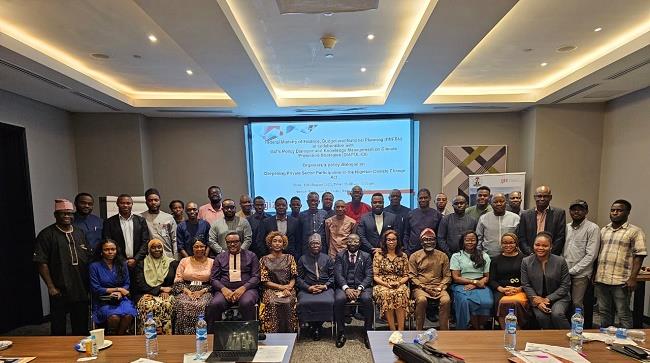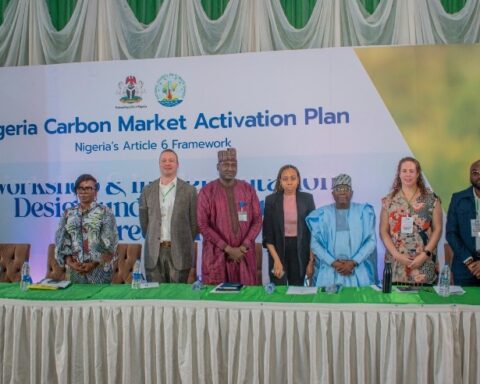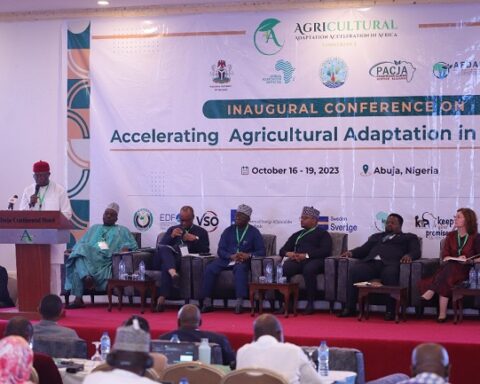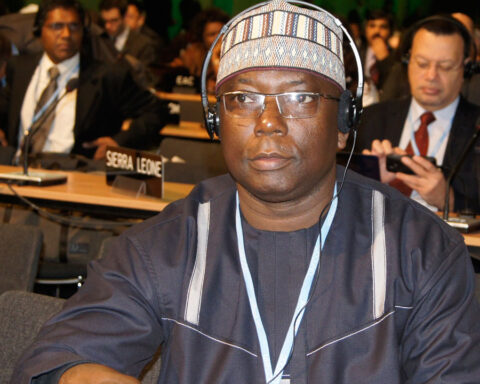The Private sector has been urged to collaborate with the government to close up the gap in the climate change space by being a more active investor in order to ensure the nation’s safety from environmental catastrophe.
Director, International Economic Relations Department, Federal Ministry of Finance, Budget and National Planning (FMFBN), Mr. George Nyeso Stanley, who made the call in his welcome remarks at a policy advocacy session on “Deepening Private Sector Participation in the Nigeria Climate Change Act”, held in Lagos emphasised that the private sector is not just a tool to help mitigate the causes of climate change.
Stanley, who was represented by Mrs. Oluwatoyin Alonge, an Assistant Director, said that many emissions reduction projects deliver non-carbon benefits such as pollution prevention, public-health improvements, and job creation health.
He added that these projects can have additional benefits such as biodiversity protection.
He noted that a forum, co-organized by GIZ’s Policy Dialogue and Knowledge Management on Climate Protection Strategies (DIAPOL-CE), is seeking to bring experts from energy, climate, and government institutions together to discuss and agree on actionable deliverables that will help to propel the economy by creating climate change investment in adaptation and mitigation actions as well as build resilience in the rural communities.
According to him, the most vulnerable regions to the impact of climate change in Nigeria are the coastal areas in the extreme southern part and erosion and desertification-prone areas in the south-eastern and northern parts of the country respectively.
Stanley disclosed that Nigeria needs more financial support from the private sector to enhance climate action, particularly in the following areas:
- Mobilization of public and private finance adaptation projects and other National plans of action as captured in the NDCs;
Support the implementation of the National Adaption Plan;
More capacity and technical support for implementing climate action; and,
Development of climate-related palliatives for Youth and women empowerment and engagement in climate actions.
Dr Salisu Dahiru, Director General, National Council on Climate Change (NCCC), underscored the need for the private sector to be involved in climate change.
“The climate change crisis affects profit, production, and survival of the private sector,” he said, even as he urged private sector players to invest in adaptation to climate change.
He assured that there would be incentives for those interested in shifting from fossil fuel-based energy to renewable energy-based resources.
Speaking in a similar vein, Huzi Mshelia, Nigeria Coordinator, NDC Partnership, opined that government alone cannot fund climate action.
His words: “Private sector intervention is vital. But we need to determine how the private sector will be involved, what the inherent incentives are, and how we will raise resources.”
Mr. Laoye Jaiyeola, Director General, Nigeria Economic Summit Group (NESG), explored the expectations of private sector players in supporting the government on climate actions.
Represented by Mr. Abass Agbaje, Jaiyeola emphasized that the private sector expects the government to create an enabling environment, even as it guides against policy and regulation conflict.
“Climate actions need to be operated in a holistic manner to ensure that certain policies are advancing climate action, while another is impeding the action,” he said.








